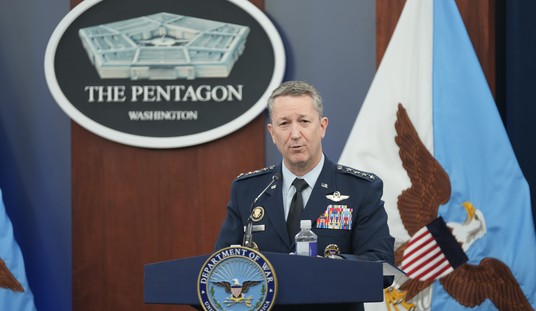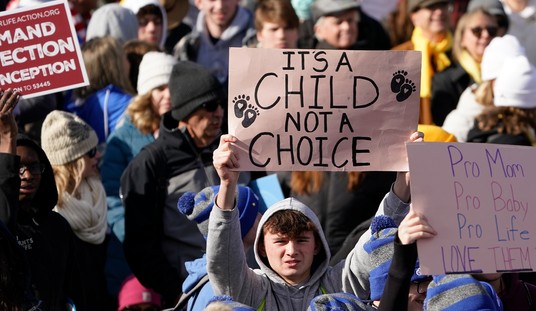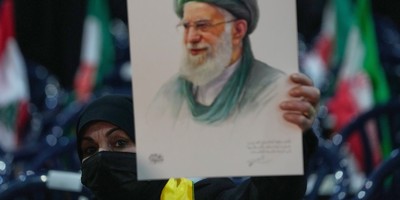Militant atheists are intent on evicting God from the public square in America.
The latest development is a suit filed by Michael Newdow against Supreme Court Chief Justice John Roberts, Pastor Rick Warren, and several others who will be participating in the upcoming Presidential inaugural ceremonies. Newdow contends that the inauguration plans violate the Establishment and Free Exercise clauses of the First Amendment to the U.S. Constitution.
Advertisement

Newdow complains that when Chief Justice Roberts administers the Oath of Office to President-Elect Obama and closes with the traditional "so help me God," he will be giving impermissible government sanction to the Almighty in violation of the Constitution. Newdow also argues that the opening prayer and closing benediction, offered by Rev. Warren and Rev. Joe Lowery, constitute an impermissible establishment of religion. Newdow believes that these practices discriminate against the free exercise of his atheist "religion."
The lawsuit is just another round in Newdow's years-long crusade against religion in the public square in America. He filed similar suits in the lead up to the past two Presidential inaugurations as well a suit which attempted to strike "under God" from the recitation of the Pledge of Allegiance in public schools and one which attempted to get "In God We Trust" removed from U.S. currency.
Newdow claims to draw his extreme view of the separation of church and state from the U.S. Constitution, but his view is plainly contradicted by the history of our country. Public, political prayers were common in the days of the Founders who drafted our Constitution and the Bill of Rights. At a time when the Continental Congress threatened to unravel from dissension over the adoption of the Constitution, Benjamin Franklin urged his colleagues to apply "to the Father of lights to illuminate our understanding." Franklin argued, "We have been assured, Sir, in the Sacred Writings, that except the Lord build the house, they labor in vain that build it. I firmly believe this. I also believe that without His concurring aid, we shall succeed in this political building no better than the builders of Babel.... I therefore beg leave to move that, henceforth, prayers imploring the assistance of Heaven and its blessing on our deliberation be held in this assembly every morning before we proceed to business."
Our First President, George Washington, would no doubt look askance at Newdow's view of the history of our founding. Washington declared, "Of all the dispositions and habits which lead to political prosperity, religion and morality are indispensable supports. In vain would that man claim the tribute of patriotism, who should labor to subvert these great pillars of human happiness, these firmest props of the duties of men and citizens." Washington reportedly added the words "so help me God" to the end of his inaugural oath and then bowed and kissed the Bible.
Washington was not alone in his belief that religious faith is an important element of the civic life of the nation. His successor, John Adams, said, "Our Constitution is designed only for a moral and religious people. It is wholly inadequate for any other." Adams went further, declaring, "So great is my veneration of the Bible that the earlier my children begin to read it, the more confident will be my hope that they will prove useful citizens of their country and respectful members of society." American statesman and Secretary of State Daniel Webster echoed similar sentiments years later when he declared, "Whatever makes men good Christians makes them good citizens."
Even liberal Supreme Court Justice William O. Douglas—whom no one ever accused of being a member of the Religious Right—wrote, "We are a religious people whose institutions presuppose a Supreme Being.... When the state encourages religious instruction or cooperates with religious authorities by adjusting the schedule of public events to sectarian needs, it follows the best of our traditions. For it then respects the religious nature of our people and accommodates the public service to their spiritual needs. To hold that it may not would be to find in the Constitution a requirement that the government show a callous indifference to religious groups. That would be preferring those who believe in no religion over those who do believe. We find no such Constitutional requirement which makes it necessary for government to be hostile to religion and to throw its weight against efforts to widen the effective scope of religious influence."
Douglas was right that America's institutions presupposed the existence of a Supreme Being. At the beginning of the Republic, the Founders in the Declaration of Independence appealed to the "Supreme Judge of the World" for the rectitude of their intentions and, with a firm "reliance on the protection of divine Providence," pledged to each other their lives, their fortunes, and their sacred honor. They rebelled against their king because he subverted those rights which they felt had been "endowed by their Creator" on all men.
Law professor Eugene Volokh makes it clear that Newdow doesn't have a legal leg to stand on. He points out that the "Establishment Clause argument about the inaugural prayers is foreclosed by Marsh v. Chambers (1983), which held that legislative prayers are generally constitutionally permissible, even to the extent they may endorse religion, because of the long tradition of such prayers dating back to the same Congress that proposed the Establishment Clause.... [The] argument about the 'so help me God' in the oath is likely also foreclosed by Marsh, given the long tradition of 'so help me God' in oaths." As concerns the free exercise argument, Volokh responds that the argument is "foreclosed by the requirement that the government action must 'substantially burden' the claimant's religious practice. Under the case law that has developed as to substantial burden, being offended at the government's use of religious language in a government ceremony would not qualify."
Undaunted by the facts or the law, Newdow, nevertheless, persists in his war on religion in America. He will not be content until God has been given the heave-ho from the public square.
Newdow and company believe that man is the measure, that man is the center of the universe, and that the rights we enjoy come from government, not from God. They are certainly entitled to their own opinions, but, to paraphrase Daniel Patrick Moynihan, they are not entitled to their own facts. The fact is that American political history is inextricably bound up with religious tradition. All the denials in the world won't negate that fact.
Therefore, expect that President Obama will close his oath with the words "so help me God" and, when he closes his speech, he is likely to ask that God bless America—all in the finest American tradition.
Recommended
Advertisement
























Join the conversation as a VIP Member